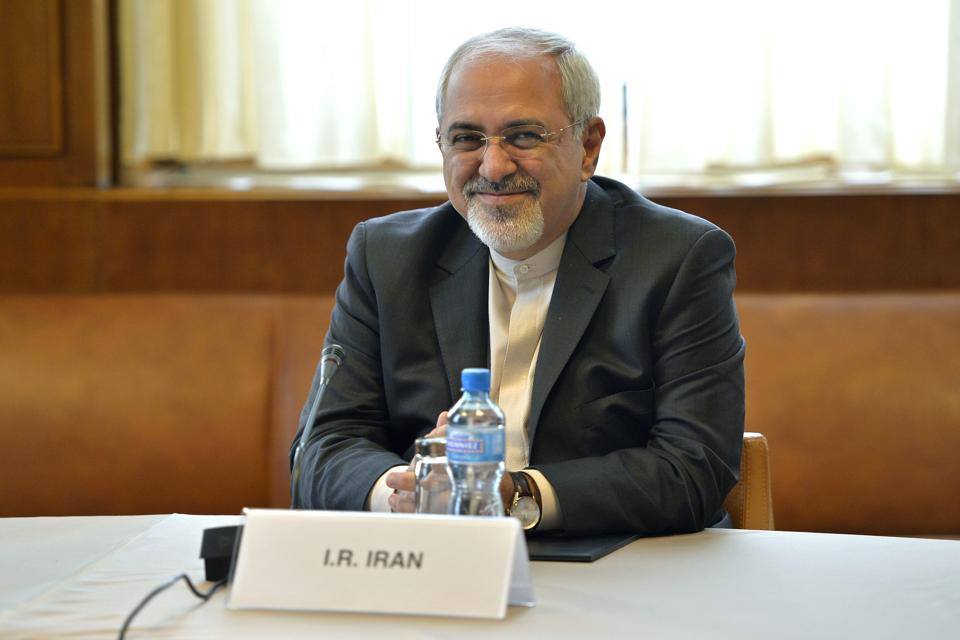
JAKARTA, Indonesia — Iran’s foreign minister defended his country’s plan to take further steps away from the 2015 nuclear deal with world powers if Europe fails to provide a solution on reviving it by a deadline that expires Friday.
The remarks by Mohammad Javad Zarif came as Iran is poised to begin work on advanced centrifuges that will enrich uranium faster as the nuclear deal unravels.
The European Union, meanwhile, expressed concern about Iran’s plan to defy provisions of the agreement and urged the Islamic Republic to step back from the brink.
The crisis stems from President Donald Trump’s pullout from the accord over a year ago and the imposition of escalated U.S. sanctions on Tehran that have choked off Iran’s ability to sell its crude oil abroad, a crucial source of government revenue, and sent its economy into freefall.
Meanwhile, a last-minute French proposal offering a $15-billion line of credit to compensate Iran over the choked off crude sales looked increasingly unlikely.
Zarif did not say what exact steps his country would take as he met with his Indonesian counterpart, Retno Marsudi, in Indonesia’s capital, Jakarta.
Zarif described the U.S. sanctions as “illegal restrictions on Iran, which we call economic terrorism … because they target ordinary Iranian citizens, the civilians.”
Marsudi said Indonesia would like to see the nuclear deal “implemented fully and effectively.”
As the nuclear deal steadily unraveled over the past months, the Iranian government scaled back its commitments under the accord. It began breaking limits of the deal, such as just creeping beyond its 3.67%-enrichment limit and its stockpile rules. Using advanced centrifuges speeds up enrichment and Iranian officials already have raised the idea of enriching to 20% — a small technical step from weapons-grade levels of 90%.
But in Jakarta, Zarif insisted Iran’s nuclear program remained peaceful and lashed out at the U.S.
“Unfortunately, the U.S. not only doesn’t normalize economic relations with Iran, but punishes others for normalizing economic relations with Iran, which is totally unacceptable,” Zarif said.
Iran’s atomic energy agency was to make an announcement on Saturday detailing its next nuclear step, which President Hassan Rouhani has described as highly significant. Details would be unveiled at a press conference in Tehran, Iranian media said.
European Commission spokeswoman Maja Kocijancic said Friday that the EU notes “with great concern the announcement made by Iran.”
“We urge Iran to reverse all activities that are inconsistent with its commitments” under the accord and to “refrain from any further measures that undermine the preservation and full implementation of the nuclear deal,” she said.
Also Friday, German Foreign Ministry spokesman Rainer Breul said Iran was not sending the “right statement” with its announcement and urged Tehran “not to exacerbate the situation.”
“The German government will carefully examine which individual steps Iran takes,” he said. “It’s not too late for Iran to leave the slope it has put itself on.”
Earlier this week, an experienced German diplomat, Michael Bock, was chosen to head a body designed to facilitate European trade with Iran, INSTEX. It was created by Germany, France and Britain to co-ordinate import and export payments so European companies can do business with Iran despite U.S. sanctions and thereby convince Tehran to stick to the nuclear deal.
———
Karimi reported from Tehran, Iran. Associated Press writers Frank Jordans in Berlin and Lorne Cook in Brussels contributed to this report.